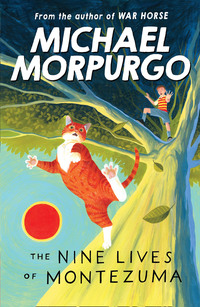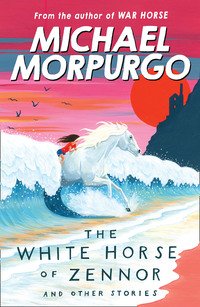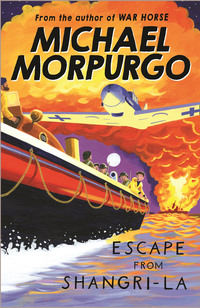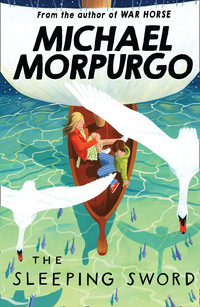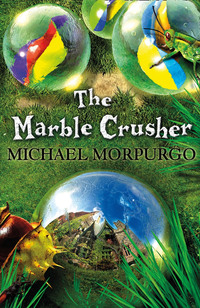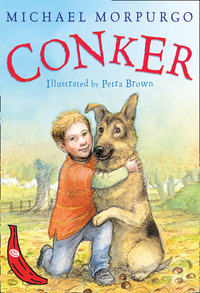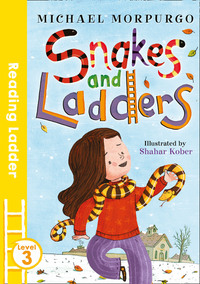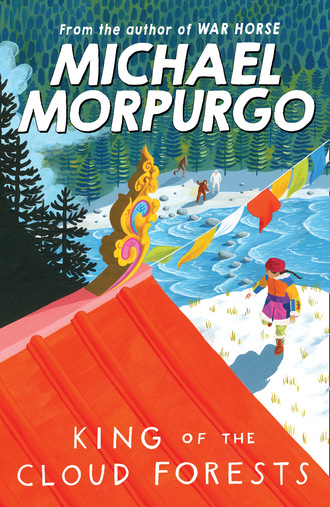
Полная версия
King of the Cloud Forests
He began to talk without even looking at me, hands clenched on his lap and leaning forward. ‘Ashley, I know your mother would want me to do this, I know she would. I am doing it for her and I’m doing it for you. This Mission is no place any more for a child. We must let Lin’s sacrifice be a lesson to us. You’ve heard what happened to the French Mission, the nuns?’ I nodded. ‘And even if the Japanese do not overrun all of China, as they well may, we have seen already what their planes can do. I cannot leave. My work is here, Ashley, with the Mission. God brought me here and God needs me here. I cannot desert these people. I have the chapel to complete and the hospital will be needed more than ever now. So I shall stay and perhaps I shall follow on later, if God wills it. But you will leave now, you and Uncle Sung.’ I tried to interrupt, but he turned on me, almost in anger. ‘Do not make this more difficult for me than it is already, Ashley. I have asked God’s guidance in this and I know it is right. Can’t you see that if I did what I wanted to do I would go tonight with you and Uncle Sung? It is a lesson to learn in life that we cannot always do what we want.’
‘Tonight?’ I said.
He nodded. ‘You’re fit enough now if you keep your arm clean and the ribs have healed nicely enough. Uncle Sung has agreed to go with you, to take you to India. It’s taken weeks to persuade him to leave the Mission but he knows there’s no other way, and he knows it’s what your mother would have wanted. You’ll have to go, Ashley.’ And my father turned away. I knew from the tone of his voice that he would brook no argument, but I tried nonetheless. ‘Why can’t we just hide somewhere?’ I asked.
My father’s voice was gentler now. ‘There is nowhere left to hide. China is in ferment. The Japanese have brought destruction into the very heart of China. Bands of brigands roam the countryside at will and terrorise the people. Missionaries have been stoned to death – yes, it’s true, Ashley. Warring factions fight each other everywhere for power. No one is safe in China today, least of all the missionaries or sons of missionaries. For many reasons, Ashley, which you are too young to understand, we are not much loved here.’ He put an arm around me. ‘It’s all arranged. For safety’s sake you will travel as Uncle Sung’s son – he has made Tibetan clothes for you. So until we meet again, Ashley, Uncle Sung will be your father. I could wish you no better guardian and guide. He will take you to the mountains in the far west, through Tibet and the Himalayas. It is Uncle Sung’s country, he knows it well. And perhaps in the spring of next year you can cross into Nepal and then down into India. As you know, your dear mother was from England and it is the English who rule in India. You will be safe there. I have written to the Mission Headquarters in Delhi. They will I’m sure provide you both with passage to England. And I have written to your grandmother in England telling her to expect you. She will look after you and I will join you as soon as I can.’
‘But when will that be, Father?’
‘When God wills it,’ my father said quietly and he stood up in front of me. ‘I shall help pack the horses now. You must be gone before dawn. I want no one to see you leave.’
The last I saw of my father was a tall black figure standing in his cassock at the gates of the Mission, waving his stick in the air. He called out, ‘God bless’, and then he was gone, closing the gates behind him. I felt then that I would never see him again. Uncle Sung reached across to me and took my hand. ‘You’re not alone,’ he said.
The moon skulked behind a cloud and we rode away together, my horse coughing in the cold night air.
CHAPTER 3
AN HOUR OR SO AFTER WE LEFT THE MISSION – IT was still not quite morning – Uncle Sung turned off the road into the trees and dismounted. He drew out of his saddlebag a pair of felt boots and a bulky quilted coat with deep pockets just like the one he always wore. ‘I made it myself,’ he said with some pride, holding it up against me. The coat was far too big for me and I told him so. ‘Time will take care of that,’ he said. ‘This will be a long, long journey. By the end of it you may well find these clothes too small, but then by the time we reach India you will have no need for them any more.’ He buttoned it up to my neck. ‘From now on I am not your Uncle Sung and you are not Ashley Anderson. You are Zong Ho, only son of Zong Sung. We are pilgrims on our way to Tibet, to Lhasa.’
Holding my arms out, I could barely see my finger-tips emerging from the sleeves. Uncle Sung laughed, sat me down and set to work on my face. ‘And you must be dark, nut brown like I am, like all Tibetans are,’ he said.
Within an hour my hair was blackened with Chinese ink, and a pigtail made of yak hair was plaited into my own hair. The makeup he used to darken my face was a mixture of crushed charcoal and cocoa, and bitter to lick. Uncle Sung worked fast, stepping back and turning my face into the light to consider it more carefully. Lastly, my hands were dusted with charcoal and a round, flat felt cap pushed down on my head. He lifted my chin, stood me up and turned me round. He was pleased with his work. ‘Zong Ho,’ he said. ‘You are now really my son. Two things you must not do. You must not wash, unless we are alone and it is safe; and you must not talk unless we are alone, and then only when I say you can. My son, Zong Ho, was born dumb. He has never uttered a word in his life, not a word.’
Not to wash was, I thought, a wonderful notion, but not to talk – that was quite a different matter. I protested strongly. It was impossible I said. I was bound to blurt something out. He took me by the shoulders. Uncle Sung had not often been stern with me, but now he was in deadly earnest. ‘In China, you are a white man, a foreigner – that is bad enough in these times, but if they discover you are the son of a missionary there are men who would murder you without even thinking about it, men on this road, and me too if I’m caught with you. And in Tibet where I come from and where we are going there are men who believe all “phillings” are devils, and no one there minds killing devils.’
‘Phillings?’ I said.
‘Foreigners. Tibetans call them “phillings”. You must understand that all men of your race are not like your mother and father. Many of them come only to take what they can and leave. Such people are not welcome, not in China and not in Tibet.’ He made me walk away from him and turn round and walk back. ‘Now remember you must speak only when I say you can, when it is safe. You’ll do, Ho Zong,’ he said, ‘just as long as you don’t wash, you’ll do. We must go on now. I want to be a long way from here before dark.’
We rode out of the trees together into the frail light of dawn. ‘Goodbye Ashley Anderson,’ I said, ‘I’m Zong Ho. Zong Ho. Zong Ho.’ I liked the sound of the name and said it again and again until Uncle Sung stopped me.
‘You may be Zong Ho,’ said Uncle Sung, ‘but you’re not the son of Zong Sung.’
‘Why not?’ I asked.
‘Because Zong Ho, the son of Zong Sung, is dumb,’ he said. ‘He has been since birth, remember?’
I thought he would be smiling when I looked across at him, but he was not. As our eyes met I think I understood the seriousness of our situation for the first time. ‘You must never forget it, Ho. Never,’ he said.
I was used to riding, but I had never travelled far on horseback before, only to the town and along the river banks with Lin. By that first evening, after a day in the saddle, I was sore and stiff. As I dismounted, my leg must have touched the horse’s rump for he started forward suddenly and I was thrown off.
I fell on my side, my arm trapped underneath me. It was not a hard fall; but my chest pained me a bit as Uncle Sung helped me to my feet. My coat was torn. When he took it off to make sure I had not damaged myself I noticed that my arm was bleeding again. The old wound was open. Uncle Sung bound it up and we both thought no more about it. It did not trouble me much. It was a clean wound after all, and almost healed.
I remember well enough the heat and the flies and the dust as we rode across the plains that summer, the filthy water we had to drink, and the rats. I shall never forget the rats, nor the infernal dogs that leapt out at us at every farmstead we passed and threatened to tear us to pieces. Without Uncle Sung’s long staff to protect us I feel sure they would have done so. But at least no one appeared to doubt we were father and son. My disguise, renewed each morning, clearly worked. Our story seemed to be believed wherever we went. We were accepted as pilgrims and much compassion was expressed at my unfortunate disability. I began to feel comfortable in my new persona and confident enough to revel in the deception. But my arm was beginning to pain me now and I found it difficult to sleep at nights.
From time to time though I felt I was regarded with some curiosity – not least I thought because I was two or three inches taller than my father (something I could not disguise) – and indeed on one occasion we did come very close to discovery.
For the most part we kept away from others, but sometimes meetings on the road with traders or pilgrims or herders forced us into company. It was the hospitality of the farmers who took us in at night that proved the most dangerous, and it was on just such an occasion that I forgot myself once over supper. The soup on this particular evening was thick with barley and steaming hot and I was famished. I ate ravenously and made the mistake of licking my fingers when I had finished. The eyes of the little girl standing at my elbow should have warned me. I saw the inquisitiveness in her face turn to a look of alarm, and only then realised that my fingers were licked quite white. Uncle Sung had noticed and kicked me hard under the table. Either the girl was too young to speak or too terrified because she ran across the room and buried herself in her mother’s skirts, sobbing hysterically. I sat on my hand until I had collected my thoughts and prayed that the little girl would not find her tongue. She kept looking back at me from over her shoulder and then she began to babble incoherently to her mother. Uncle Sung kicked me again and I looked across at him. He was reaching down and rubbing his hand on the sole of his boot, feigning a fit of coughing as he did so. By the time the little girl dragged her mother over to look at me my hand was grimy with the dirt from my boot and quite as dark as the other. She took one look at it, screamed and ran out of the door, her bewildered mother in hot pursuit. I never licked my fingers again.
As we travelled westwards Uncle Sung taught me to understand Tibetan well enough not to look stupid if I was spoken to. I remembered a little of what he had taught me when I was younger, but now I think I was quicker to learn. To speak it though would have betrayed me at once. I was happy enough to be dumb. He taught me how to blow my nose with my fingers as all Tibetans do, and to spit like a Tibetan herdsman, long and loud and often, to click my tongue as he did to show amazement – a practice I did not find difficult for I had in the past often mimicked Uncle Sung’s own peculiar way of expressing himself. It did not matter yet, he said, but once we were amongst Tibetans I would need to be more convincing if I was to be accepted as one of them.
We had to walk a lot now as we left the plains behind us that autumn and began to climb higher into the hills. The horses were sturdy, thickset creatures but hardly bigger than donkeys, and with our packs we were a heavy load. To rest them we dismounted at the foot of every hill and walked up. I remember that I found it difficult to keep up with Uncle Sung on the hills and that my arm still would not heal properly despite all Uncle Sung’s efforts. It ached continuously now and throbbed down to my finger-tips. I knew I was getting weaker but did not want to admit it either to myself or to Uncle Sung. It was not courage, just obstinacy.
I have a clear picture in my mind of Uncle Sung walking ahead of me, one arm on the neck of his horse and leaning on his staff. Beyond him the sun came up over the mountains and set the peaks on fire. They were the first high mountains I had ever seen. ‘Tibet?’ I called out. ‘Not yet,’ said Uncle Sung. ‘But soon. Soon now.’ And suddenly my legs gave way and I found myself on my hands and knees incapable of moving. Uncle Sung was helping me to my feet, but I was too feeble even to stand. There was not enough strength in my arms to hold on to him. I looked up. Uncle Sung’s face glowed copper gold and flames from the mountains licked about his head.
That is all I can honestly say that I remember of the first stage of our journey. For the missing months of winter I must rely on Uncle Sung’s account of my illness and the trek up through the mountain passes of Tibet onto the plateau. The horses were sold and he bought a yak and a cart to carry me and the baggage – a horse cannot negotiate snowdrifts as well as a yak. I have only incoherent flashes of recollection, the stifling smell of smoke, greasy sheepskins, the rocking of a cart and the swaying vision of white mountains against a grey pall of sky, and a cold whining wind biting at my face. I remember, or rather I think I remember because my grip on reality was so tenuous I may well have dreamed it, but I recall lying at night with the stars so close I could almost reach out and touch them; and then there were the strong colours of the high plateau with its dark, deep skies and everywhere rocks of red and yellow.
It seems it was the poison in my arm that nearly killed me. Unnoticed it had affected my whole body. For nearly two months, Uncle Sung told me, I hovered near to death. He found refuge for us in a disused butcher’s house in a mountain village, built entirely of bones and horns. The people of the village were used to pilgrims and treated us with great kindness. The house was dry and warm. The yak dung for the fire was brought to the house every day by the villagers, who prayed as Uncle Sung did for my recovery. More than once, Uncle Sung told me, my feverish ravings had almost given us away. Many was the time he had to clap his hand over my mouth in case someone passing by outside the house should hear me. English or Chinese – I raved in both and both were equally dangerous. After all I was supposed to be dumb. Somehow I survived. Uncle Sung never believed in miracles, but he often said afterwards that he now understood why many people did. Reason tells me that if it wasn’t a miracle that saved me, it must have been Uncle Sung.
The next spring, when he thought I was strong enough to travel again and when the snows had cleared from the high passes, Uncle Sung decided to move on. So, buried under a pile of sheepskins, each one a parting gift from the villagers, I lay in the back of the cart whilst Uncle Sung led me up into the foothills of the Himalayas.
We followed a well-trodden path now and almost every day we would meet parties of pilgrims on the road. Uncle Sung tried to avoid them, but it was inevitable that we should often camp with them at night, sometimes in the open but more often we were offered the hospitality of a farmer and slept in his house. The fog of my memory clears now I suppose, because all the while I was regaining my strength and health. I must have been fully recovered by the time I met the lama for I remember clearly every word he said to me. It was a meeting that was to change the course of my life.
That evening we were amongst a dozen or so fellow pilgrims gathered together in an isolated farmhouse. We were relieved to have found it for outside the weather was worsening. We were talking and eating together in a first floor room – like all Tibetan houses, the ground floor was the stables. I was looking out of the window and up towards the mountains, trying to ignore the inquisitive eyes of the farmer’s children, when the lama came in through the door. He was dressed in a humble travelling robe tied around the middle with a red belt, and he wore a tall, red cap on his head. The children were silenced for a few moments and settled down to stare at him. Some meat and freshly dug turnips were cut up unwashed and thrown into the pot. When he had finished eating, each of the pilgrims asked him for an omen, or ‘mo’ as they call it in Tibetan. I knew enough of the Tibetan language now to make some sense of what was being said – Uncle Sung had seen to that. The lama answered each pilgrim patiently in low, considered tones and then turned to Uncle Sung. ‘You do not ask for “mo”,’ he said. ‘Do you fear for what lies ahead?’
‘No,’ said Uncle Sung. ‘I have no desire to know what will happen to me on this earth, and what happens to me afterwards I shall deserve – that’s all I know. We decide for ourselves. It is in our hands, is it not?’ The lama nodded and smiled.
‘And your companion?’ said the lama.
‘He is my son, Zong Ho,’ said Uncle Sung.
‘Bring him where I can see him.’
Uncle Sung nudged me to my feet. Reluctantly I got up and stood in the circle of pilgrims, looking down at the lama. He looked me in the eye for long and dangerous moments. I could not hold his gaze. I looked down to Uncle Sung and he smiled encouragement. I was confident enough in my disguise, indeed so confident by now that I had even forgotten that I was at risk, but this man was not looking at my clothes nor at my skin. His eyes reached into my soul and found me out. I felt like running, but the way to the door was blocked by the farmer’s family who had crowded into the room. There was no escape.
‘He does not speak,’ said Uncle Sung. ‘Since the day he was born he has never spoken a word.’
The lama’s eyes never left my face. And then he spoke very slowly and with great deliberation. ‘You have a fine son but he has the blue eyes of a “philling”,’ he said. The word sent a shiver of suspicion around the room. The lama held up his hand. I think Uncle Sung and I then acted better than we ever dreamed we could. I feigned furious outrage, and blew my nose with my fingers and Uncle Sung cursed all phillings roundly for good measure.
‘My son’s eyes,’ he finished angrily, ‘are an accident of birth as is his dumbness. Would you blame him for that?’
‘I did not mean any offence,’ said the lama. ‘But he has strangely light eyes for one of our country. He is taller than you, taller than any grown man in this room – and he has the giant feet of a yeti. But it is not his great size that troubles me. There is something about him that tells me he is not like one of us. I see a ruler standing before me. I tell you, this boy of yours will be a king, and soon.’ The lama had his eyes closed now and was speaking in a whisper. ‘He will be a king of the cloud forests. He will rule among the clouds.’ He opened his eyes. ‘That is all I can tell. Ask me no more.’
Конец ознакомительного фрагмента.
Текст предоставлен ООО «ЛитРес».
Прочитайте эту книгу целиком, купив полную легальную версию на ЛитРес.
Безопасно оплатить книгу можно банковской картой Visa, MasterCard, Maestro, со счета мобильного телефона, с платежного терминала, в салоне МТС или Связной, через PayPal, WebMoney, Яндекс.Деньги, QIWI Кошелек, бонусными картами или другим удобным Вам способом.


